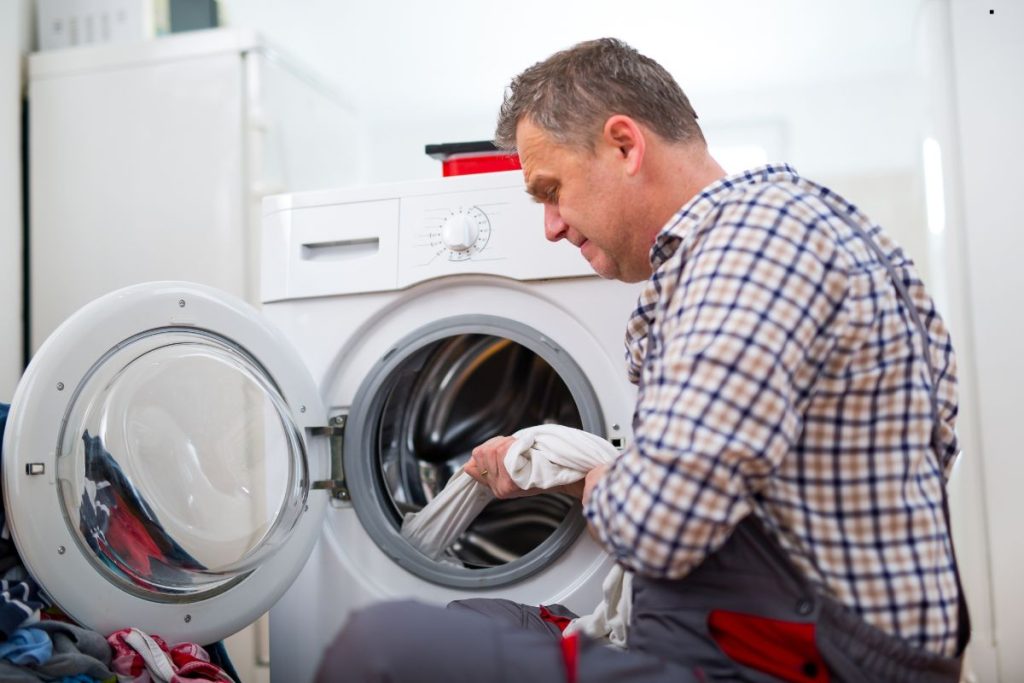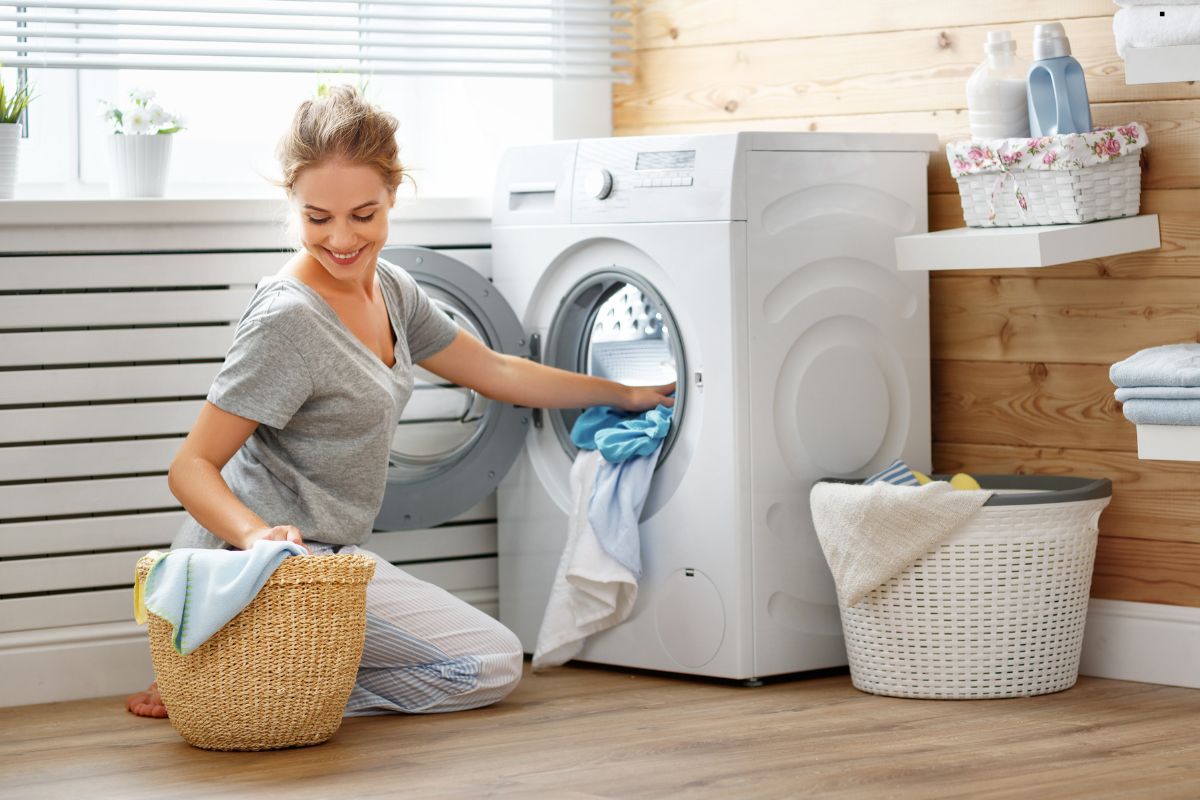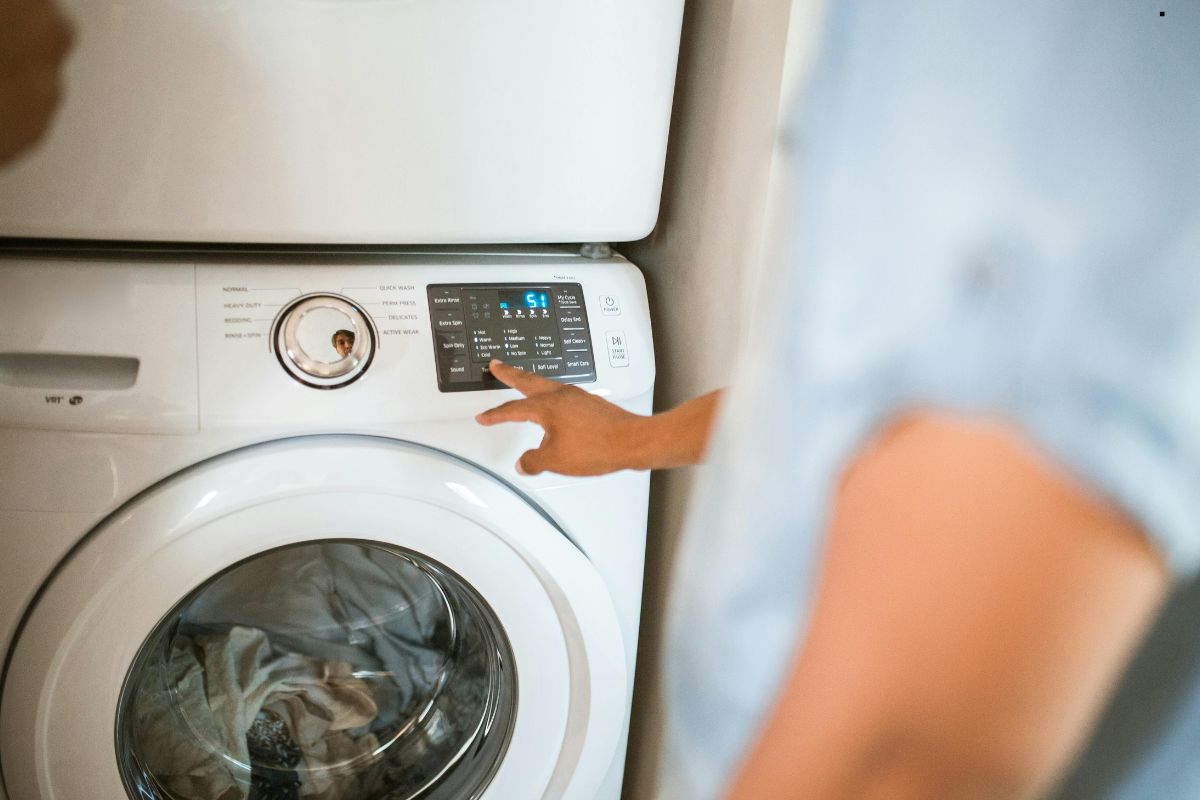
Is your washing machine acting up, leaving you with soaking wet clothes or making strange noises? Ignoring these signals can lead to bigger, more expensive problems down the road. This article will help you understand the common signs that your washing machine needs repair, from water issues to strange sounds and poor cleaning performance. Knowing what to look for can save you time, money, and the headache of a major appliance breakdown.
The Tell-Tale Signs: Identifying Common Washing Machine Problems

Washing machines, like any appliance, can develop problems over time. Recognizing these early warning signs is crucial for preventing further damage. Here are some of the most common indicators that your washing machine may be in need of repair. For more essential laundry tips, visit our previous blog 7 Things You Should Never Put in the Dryer guide.:
- Water Issues: Slow filling, failure to drain, or leaks.
- Unusual Noises: Loud banging, grinding, or excessive vibration.
- Poor Cleaning Performance: Clothes not getting clean, excessive soap residue, or damage to clothing.
- Electrical Issues: Failure to turn on, tripping circuit breakers, or burning smells.
- Error Codes: Displayed on the machine’s control panel.
Water, Water, Nowhere (or Everywhere!): Diagnosing Water-Related Issues
Water-related problems are among the most common washing machine issues. Here’s a breakdown:
- Slow Filling or No Filling: Check the water supply hoses to ensure they are connected properly and the valves are fully open. Look for kinks or clogs in the hoses. The problem might also be a faulty water inlet valve.
- Washer Not Draining Properly: This could be caused by a clogged drain hose or a faulty drain pump. Check the hose for kinks or obstructions.
- Leaks and Overflowing: Leaks can occur from various locations, including hoses, seals, or the tub itself. Overflowing can be caused by a faulty water level switch or a clogged drain.
If you suspect any major water-related issues or don’t feel comfortable troubleshooting on your own, its time to Call us
Bang, Clunk, and Grind: Decoding the Noises Your Washer Makes
A washing machine shouldn’t sound like a construction site! Unusual noises are often a sign that something is wrong:
- Loud Banging During Spin Cycle: This is often caused by an unbalanced load. Try redistributing the clothes in the drum. If the problem persists, it could be a sign of worn-out suspension rods or dampers.
- Grinding or Whining Noises: These sounds may indicate worn bearings or a failing motor.
- Excessive Vibration: Excessive vibration can be caused by an uneven floor, an unbalanced load, or worn-out suspension components.
Ready to say Goodbye to those loud banging noises? Call us and let’s get it fixed.
Are Your Clothes Still Dirty? Quality of Wash Concerns
If your clothes aren’t coming out clean, even after a full wash cycle, there could be a problem with your washing machine:
- Clothes Are Not Getting Clean: This could be due to a broken agitator or impeller (in top-loading machines), a malfunctioning wash plate (in front-loading machines), or insufficient water temperature.
- Excessive Soap Residue: Too much detergent, a faulty dispenser, or a problem with the water level can cause soap residue.
- Clothes Are Damaged After Washing: This could be caused by a sharp object in the drum, a rough agitator, or an excessively aggressive spin cycle. For professional help and repairs, check out our laundry appliance repair services.
Zapped! Addressing Electrical Problems with Your Washer

Electrical issues with your washing machine are a serious safety concern:
- Washing Machine Not Turning On: Check the power cord, the circuit breaker, and the power outlet.
- Tripping Breakers: This could be a sign of a short circuit or an overloaded circuit.
- Unusual Smells: A burning smell could indicate a problem with the motor, wiring, or other electrical components.
Decoding The Matrix : Understanding Error code your Washer is Showing
Modern washing machines often display error codes when they encounter a problem. Consult your washing machine’s manual to decipher the meaning of the code. Error codes can provide valuable clues about the nature of the problem. Common error codes related to water issues, motor malfunctions, or sensor failures.
[External Link Suggestion: Provide a link to a common error code website, to decode some code for reference]
When to DIY and When to Call a Professional Appliance Repair Technician
Minor problems, such as a clogged drain hose or an unbalanced load, can often be resolved with DIY troubleshooting. However, more complex repairs, such as motor replacements, electrical repairs, or problems with internal components, should be left to a qualified appliance repair technician. Remember safety and cost effective analysis, if there are lots of problems its better to hire professional help. .
Keeping Your Washer Happy: Tips for Washing Machine Maintenance
Regular maintenance can help prolong the life of your washing machine and prevent costly repairs:
- Regular Cleaning: Clean the drum, dispensers, and exterior of the machine regularly.
- Proper Loading Techniques: Avoid overloading the machine and distribute clothes evenly in the drum.
- Checking Hoses and Connections: Inspect hoses for cracks, leaks, or bulges. Replace them as needed.
Don’t Ignore the Signs! Protect Your Investment With Timely Washing Machine Repair
Recognizing the signs of washing machine trouble and taking prompt action can save you time, money, and frustration. From water-related issues to strange noises and electrical problems, being aware of the warning signs is the first step toward protecting your appliance. Don’t wait for a small problem to turn into a major breakdown. If you suspect your washing machine needs repair, Contact us for expert assistance and reliable service.

